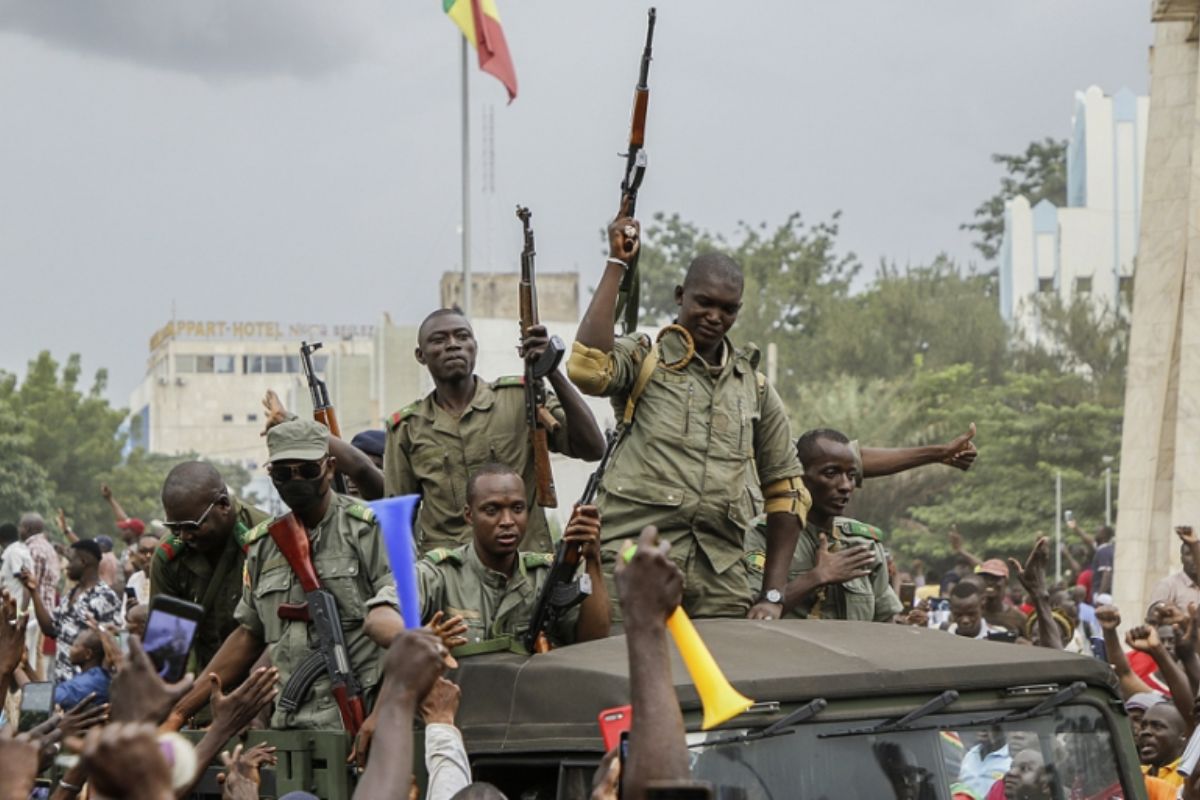[web_stories title="false" excerpt="false" author="false" date="false" archive_link="true" archive_link_label="" circle_size="150" sharp_corners="false" image_alignment="left" number_of_columns="1" number_of_stories="5" order="DESC" orderby="post_title" view="circles" /]
Will Military Coups Roll Back Democracy in West Africa?
The latest successful coup in West Africa, in Burkina Faso on January 24, 2022, has reignited concerns about coups “returning” and democracies “dying” in Africa. The latest coup attempt in Guinea-Bissau also reminded me of the first decades after independence, when coups were common.
By 2012, Africa had over 200 coups and attempted coups over its various periods of independence. In the 1960s and 1970s, there was a coup attempt every 55 days, and over 90% of African countries experienced a coup. Following the Cold War, Africa launched a neoliberal democratic program. It pledged to liberate Africa from authoritarianism and military takeovers in favor of democratic pluralism and the rule of law. Thus, many decades later, coups were seen to be rare, if not extinct, and dictatorships were thought to be on the decrease.
As one of us argued in a previous essay, for this to be a “return” of coups, African democracy must have progressed far enough to preclude or limit coups. To suggest that African democracies are disappearing is to admit that they ever existed. Coups, in any case, are rarely a solution to poor governance. The current trend must be reversed. However, it also calls for a rethinking of Africa’s neoliberal democratic goal.
Our research into the region’s political history has revealed that democracy in the region is often shallow. Despite considerable progress, democracy remains mostly superficial, and the conditions that lead to coups remain. West African coups in recent years. A look back at the history of coups in West Africa reveals several recurring patterns as potential explanations. These demonstrate how likely additional coups are and what needed to happen to avert them.
According to one study, West Africa had the highest number of coups on the continent in each decade between 1958 and 2008, accounting for 44.4% of the total. Over 40 coups and attempted coups have occurred in Africa since 2010, with approximately 20 occurring in West Africa and the Sahel (including Chad). There have been 7 since 2019. (five successful and two failed).
Most coups in Africa occurred in former French colonies between 1958 and 2008, as have six of the seven since 2019. Similarly, 12 of the sub-20 region’s coups have occurred there since 2010. Burkina Faso’s most recent successful putsch followed two failed attempts in 2015 and 2016.
The causes of coups in West Africa can be divided into two categories: inward-looking factors and outward-looking elements. Those that stem from national governance challenges are inward. Outward are those concerning global factors that have a substantial impact on African governance and security.
Among the inward-looking factors are governance inadequacies, non-fulfillment of citizenship entitlements, disgruntled masses (most of whom are young), and increased insecurity. Among the outward-looking variables are international influences, including external influences.
However, these immediate variables exist within a larger context that enables for immediate causes to remain long enough to launch coups. Unimpressive democratic circumstances in countries, as well as the consistency of foreign influence in African countries, make recent attempted and successful military takeovers of government unsurprising.
Examining democracy and governance from within Despite modest democratic advances, a more fair description of West African democracy is that it is superficial. Elections are held on a regular basis, but they lack important democratic components such as informed and active participation, respect for the rule of law, judicial independence, and civil liberties.
According to a survey of voting intentions in 16 African countries, voters supported specific parties not because they liked the policies of the parties, but because they are fearful of being “punished” by elected authorities after the election.
Another study discovered that political authority is increasingly being inherited rather than democratically challenged. And individuals are appointed who report to powerful political overlords. There are only a handful of examples of newly formed liberal democratic governments.
In just over a decade, several incumbent presidents throughout the continent have interfered with constitutional terms in order to stay in power longer. Many others have tried, but have failed. Foreign influence and strategic competition increase the likelihood of coups. During the first four decades of independence, coups clashed with Cold War politics as the Soviet Union (now Russia) and the United States fought over the continent.
Recent coups in West Africa, like others in the post-independence era, bear foreign imprints. For example, Russia is mentioned in the coups in Mali in 2021 and 2020, as well as the most recent one in Burkina Faso. Assimi Gota, the leader of both Mali coups, is also said to have received US training and support. Because of its colonial ties to West Africa, France’s impact on sub-regional political events is nearly unavoidable.
Paris, for example, supported Mahamat Déby’s covert coup in Chad. China, like Russia, helped Russia in stopping France, who had the support of the US and the EU, from obtaining UN Security Council approval for economic and border sanctions on Mali. Indeed, although China condemned the putsch in Guinea, it remained silent on Mali’s.
Thus, in the twenty-first century, foreign countries’ drive for geopolitical influence and benefit in Africa has led to coups across the continent. Local politics and authoritarianism are tolerated as long as their strategic advantage is served.
Dynamic conditions exist for coups to occur. To prevent future coups and respond to present ones, a drastic shift in strategy is required. Countries must address governance gaps in the form of non-fulfillment of citizenship entitlements, socioeconomic discontent, and increased insecurity with the assistance of regional and global partners.
Democratization in Africa necessitates a reorientation to local realities. Finally, a more long-term reaction to coups would be to eliminate the negative socioeconomic and political conditions in national and international politics that allow immediate sources of political instability to lie behind a democratic façade.
Please visit our website unitedfact.com.


